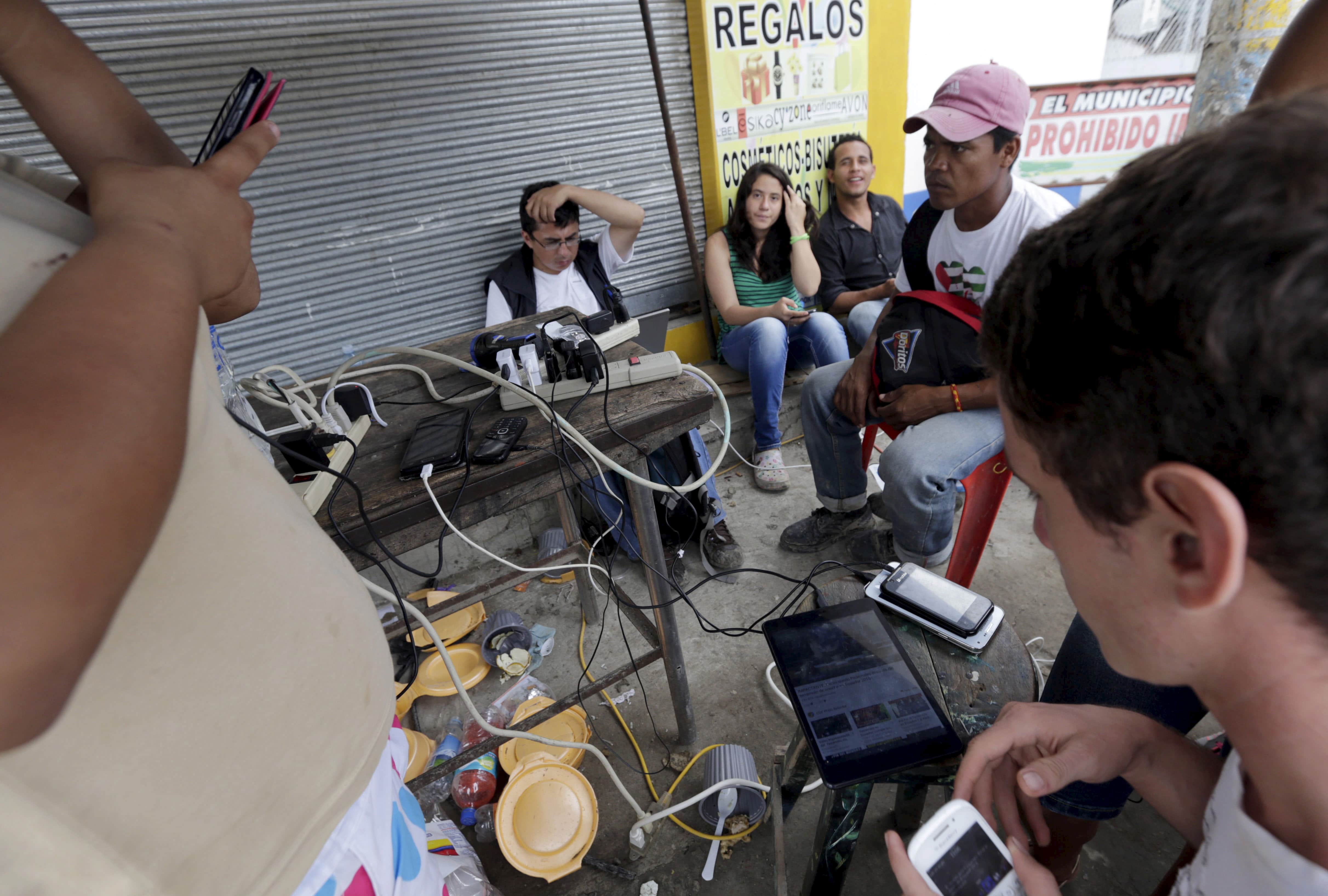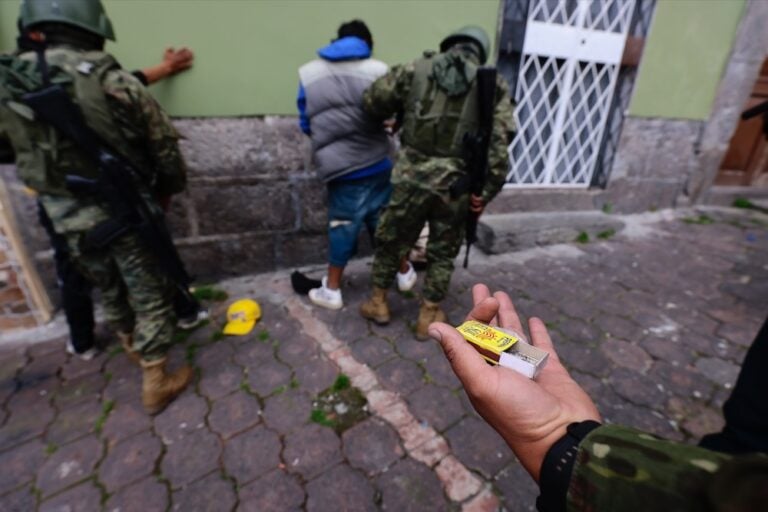A campaign was set in motion by the Telesur network on 6 June 2016 in which Ecuadorian journalists and opposition politicians are accused of having connections with the CIA in order to destabilise the government of President Correa.
A campaign was set in motion by the Telesur network on 6 June 2016 in which Ecuadorian journalists and opposition politicians are accused of having connections with the CIA in order to destabilise the government of President Rafael Correa. It is also insinuated that preparations are underway for an assassination. This campaign immediately reappeared on state and pro-government media, such as El Telégrafo, Ecuador TV, Agencia Andes and El Ciudadano. Two more presentations forming part of the campaign appeared on 7 and 8 June, with an expected total of 5 segments. This has been followed by public accusations from senior government officials and legislators, and disparaging comments on social media from official ruling party accounts and President Correa’s supporters.
The “documentary” presented by Telesur, an international network financed by the ALBA governments, is a makeshift montage blending historic moments like the Cold War with current events, and relating individuals and historic figures that have nothing to do with each other. It is also based on documents illegally obtained by hacking journalists’ email accounts, and it presents photographs obtained by intelligence monitoring – possibly illegally – of journalists, activists, directors of organisations defending human rights, and citizens.
Without citing any sources, it asserts in both presentations that there exists a platform consisting of media outlets and NGOs that are looking to destabilise the government with financing from the United States and organisations like USAID and NED, which, according to the “report,” are the same as the CIA. Despite not indicating sources, the network maintains its assertion by presenting various photographs of private meetings and events held by some journalists and opposition politicians, without giving any explanation about how they were obtained.
Along these same lines, journalists Juan Carlos Calderón, from the Plan V magazine; Martín Pallares, José Hernández, Roberto Aguilar, the manager of Crudo Ecuador, Gabriel González, [all] from the 4 Pelagatos website; ex-assembly member of the opposition, Martha Roldós, from the MilHojas website; Fernando Villavicencio from the Focus Ecuador website, and the director of Fundamedios, César Ricaurte, were accused of being a part of this alleged destabilising network. Regarding Fundamedios, it was also said that this is “an organisation that disguises itself as a defender of freedom of expression, but in reality it is an instrument for the psychological efforts of American intelligence in Ecuador.”
In total, the campaign has sought to implicate 34 people in the alleged conspiracy, destabilising efforts and espionage activities for a foreign government.
These accusations began to reappear as of that same night on 6 June, through state media such as El Telégrafo newspaper, in releases titled: The CIA seemingly Operating in Ecuador with Politicians and Journalists and Funding from Various NGOs, Politicians and Journalists Turn up in an Investigation Revealing CIA Interference in Ecuador and The CIA: New Techniques, Same Strategy?
The same was done by the Andes news agency, in releases titled: Investigation Initiated by Regional TeleSur Channel Reveals CIA Interventionism in Ecuador and A ‘Dirty War’ Led by Opposition Media Outlets is Reported in Ecuador and by El Ciudadano, a government media outlet, in the release: Telesur Warns of CIA Interference to Destabilize the Citizen Revolution (VIDEO).
Quasi-official media, such as Ecuadorinmediato, also echoed these accusations under the title: Telesur Reports CIA Interference in Ecuador, as did the official Cuban agency, Prensa Latina, which published the piece: Multinational Telesur Channel Reports CIA Interference in Ecuador.
In an interview with TeleSur, Communations Secretary Patricio Barriga stated that the online media outlets listed above were misinforming the public for political and psychological gain, while the origin of resources that they receive point to the “clear objectives to destabilise progressive governments” and to “legitimise those with right-leaning politics.” According to the Communications Secretary, these websites must be investigated as their contributors are, for example, ex-militaries, and alleged political and social activists “that all embrace one single objective: to denounce Ecuador’s progressive government.”
In the last hours, President Correa endorsed the reports and stated in a meeting with the foreign press that “they are correct, we already knew this,” in regards to connections between journalists, media and politicians, who are trying to destabilise his government. He also added: “National Endowment for Democracy (NED) is the financial arm of the CIA, like in Venezuela, like in Bolivia, it no longer funds the Red Cross; no, it funds groups for education on democracy, read to destabilise the government.”
Fundamedios condemns this new escalation and warns the international community of the severity of these accusations – which are unfounded – that this makeshift campaign led by Telesur has launched. The aim of actions of this magnitude can only be to create a climate of opinion that justifies repressive actions. [This also allows] for increasing levels of persecution against journalists, the media and organisations that have taken on the banner of defending human rights and denouncing acts of corruption that implicate senior government officials.



